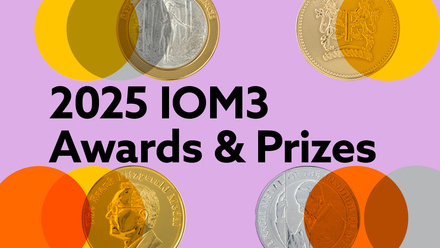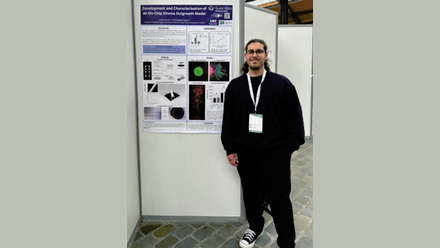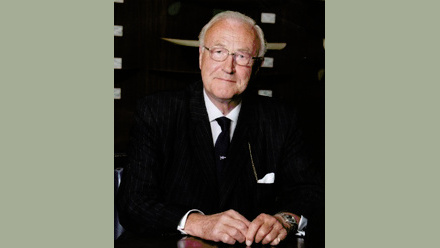Obituary – Dr Ian Dillamore FREng FIMMM
Ian Dillamore revolutionised the subject of texture in metals during his academic career and later went on to lead the formation of Doncasters plc. He was a recipient of the Institute's Platinum Medal and a stalwart of the Birmingham Metallurgical Association.
Dr Ian Dillamore FREng FIMMM
1938-2022
Ian graduated in metallurgy at Birmingham University and continued being a lecturer there for many years, teaching physical metallurgy. He was subsequently Head of Physical Metallurgy at BISRA, Sheffield, UK, for seven years before returning to Birmingham to be professor and head of department at Aston University.
Ian’s main research topic during those periods was preferred crystallographic orientation or texture, an important topic in the anisotropy and formability of metals. Textures arise in metals both during deformation, especially rolling, and on annealing; it is no exaggeration to say that he revolutionised this subject in both these regards. His comprehensive review with WT Roberts was the first in the English language but his greatest contribution was to link together the textures from deformation and recrystallisation in a single framework, where conditions for recrystallisation are established within the deformation substructure.
Completely original at the time, this approach is now standard in almost all publications on the subject. Ian was also the first person to establish the only truly stable fcc rolling texture using plasticity theory which is now universally referred to as the D-component or Dillamore orientation. Many more examples of his contributions can be enumerated. Working together with Ian was never less than challenging but always immensely stimulating.
When the H-J Bunge award was instituted by the international texture community in 2008, its first recipient, chosen by vote, was Ian Dillamore. The significance of this can be appreciated from the fact that Ian had completely left the texture field in 1981 so his scientific legacy was still widely recognised 27 years on. He was elected Fellow of the Royal Academy of Engineering in 1983 and in 1999 he was also honoured with the premier award, the platinum medal, of the Institute of Materials.
Ian left Aston University in 1981 to take up the position of Technical Director at Inco Alloy Products, and later Managing Director of Inco Engineered Products (IEPL) Birmingham, UK. This comprised a group of operations focused on the production of metal components primarily for the gas turbine industry. A major new phase in his life started in 1996 when he led the formation of Doncasters plc, taking on the IEPL operations as an independent company floated on the New York Stock Exchange, with himself as President and Chief Executive of the company.
Inco had taken over the original Daniel Doncasters forging company in 1975. That company could be traced back to the 18th century and the revival of its name and ‘diamond’ trademark reflected Ian’s deep interest in, and knowledge of, English industrial history and heritage. In spite of his considerable workload in the commercial field, he was active in what can be reasonably classified as production engineering and with innovations in manufacturing.
A major expansion of the Doncasters group occurred in 1997 with the takeover of Triplex Lloyd. With the acquisition of Triplex Lloyd’s advanced casting capabilities, Doncasters provided a comprehensive range of manufacturing technology for gas turbine components although this was not the sole output of the group. At the time Ian left in 2000, the group had more than 20 sites in the UK, the USA, Germany, Belgium and Mexico and employed over 4,000.
Ian’s experiences with Doncasters made him deeply critical of the finance industry. This is demonstrated in his book, ‘An Industrial Evolution’, published in 2014; a publication that also demonstrates his strong interest in industrial history as well as his intelligence and integrity.
Since retiring from business, Ian maintained his deep metallurgical interests, becoming Honorary Professor at the University of Birmingham where he also was awarded the Honorary Degree of Doctor of Engineering, as well as being a stalwart of the Institute’s local section, the Birmingham Metallurgical Association. He published provocative letters in the IOM3 member magazine Materials World and also a book about nickel and its alloys entitled ‘The Midlands Metal: Nickel in the Service of Man.’ Ian is survived by his wife Maureen and sons Michael and Robin together with five grandchildren.
Prof Bevis Hutchinson and Dr Peter Bate







